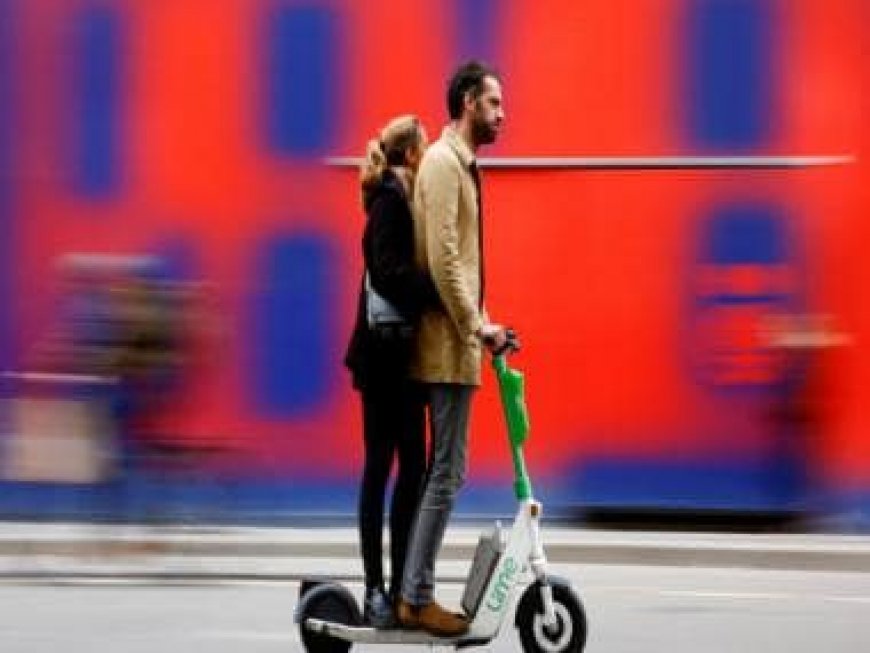A New Era in Micro-Mobility: Paris bans shared e-scooters, embraces e-bikes
A New Era in Micro-Mobility: Paris bans shared e-scooters, embraces e-bikes

Paris has taken a significant step by becoming one of the first European cities to put a complete stop to the use of rented e-scooters, following an overwhelming vote by residents in favor of this decision.
In a referendum held in April, voters had two options: to support or oppose a city-wide ban on shared e-scooters. Nearly 90% of the voters backed the ban, although the overall voter turnout was quite low, with only 7.5% of eligible voters participating. Despite this, Mayor Anne Hidalgo hailed the result as a triumph for democracy and pledged to enforce the ban.
This ban specifically targets rental e-scooters, known as “trottinettes” in French, offered by three licensed companies in Paris: Tier, Dott, and Lime. These micro-mobility firms, with a collective fleet of around 15,000 e-scooters in the city, are required to remove their trottinettes from the streets by tomorrow, September 1.
It’s important to note that this ban does not affect shared electric bike (ebike) services within the city, nor does it prevent individuals from using privately-owned e-scooters.
According to a spokesperson from Dott, as of August 21, their fleet of 5,000 e-scooters had already been cleared from the streets of Paris. These scooters will be redeployed to regions with high demand, including Belgium and even as far away as Tel Aviv. Tier will return most of its scooters to Germany or Warsaw, while Lime plans to distribute them to cities like Lille, London, Copenhagen, and various locations in Germany.
Paris had embraced shared e-scooters early on in 2018, presenting them as an eco-friendly alternative to cars, aiming to reduce pollution and alleviate traffic congestion.
However, the proliferation of these scooters soon led to disorderly scenes, with users, including tourists, abandoning them on sidewalks, riding recklessly in crowded areas, and even discarding them into the River Seine. This misuse resulted in injuries and, sadly, a few fatalities, mostly involving pedestrians.
In response, Mayor Hidalgo pledged to enforce stricter regulations, including speed limits and measures against reckless riding and improper scooter disposal. In 2019, the French government incorporated e-scooters into the national highway code, imposing regulations nationwide.
Despite these efforts, problems persisted, ultimately culminating in the April 2023 referendum and the subsequent prohibition of shared e-scooters in the City of Light.
It’s worth noting that Paris is not the first city to impose restrictions on e-scooters, including speed limits and designated parking areas with fines for violations. Madrid, earlier this year, lifted a previous ban on rental firms with new conditions, as Copenhagen did in 2021. Most e-scooters are banned on public roads in the Netherlands. However, outright bans by cities that had previously welcomed them are relatively rare.
Dott’s spokesperson emphasized that “the situation in Paris is isolated,” with several other European cities reinforcing their commitment to this mode of transportation. “Lyon recently signed a four-year contract for e-scooters, London extended its trial for an additional three years, and Madrid committed to a three-year contract after a tender,” the spokesperson stated.
In Paris, Dott, Tier, and Lime will now shift their focus towards ebikes, aiming to fill the void left by the departing trottinettes.
Even before the ban on e-scooters, operators reported robust growth in their ebike businesses. Dott noted a 166% increase in ebike rides in the first half of this year, while Lime reported a 73% rise in bike journeys in the capital city last year.
Lime expressed optimism, saying, “We now operate twice the number of e-bikes as we did e-scooters and are encouraged by the city’s continued support for cycling ahead of the 2024 Olympics.”
While ebikes can also clutter sidewalks and pose potential risks to pedestrians, they are generally perceived as safer, although this may not always be the case.
In any case, it remains to be seen how this ban will affect commuters in the long term. Perhaps Paris may reconsider it in the future, as Madrid and Copenhagen have done. But for now, it’s time to bid farewell to the vibrant fleets of trottinettes in the French capital.
What's Your Reaction?

























































